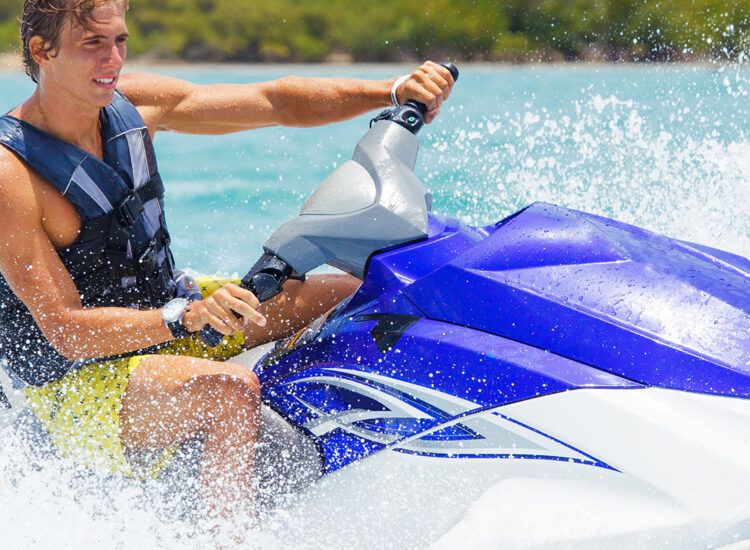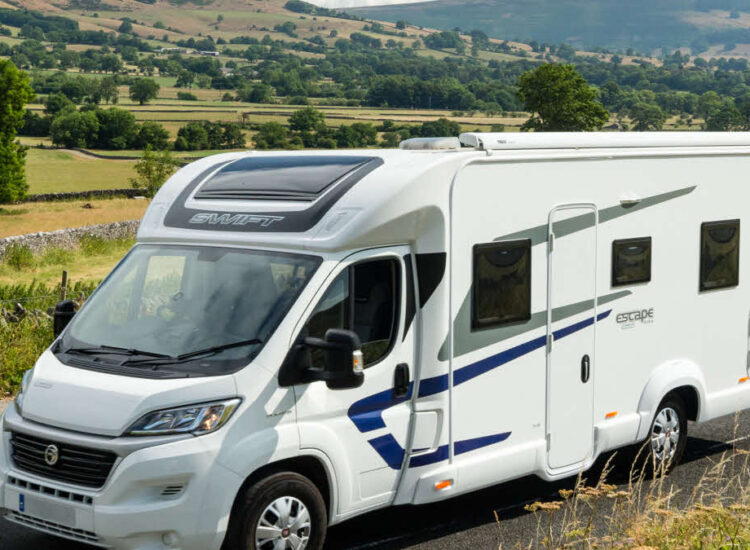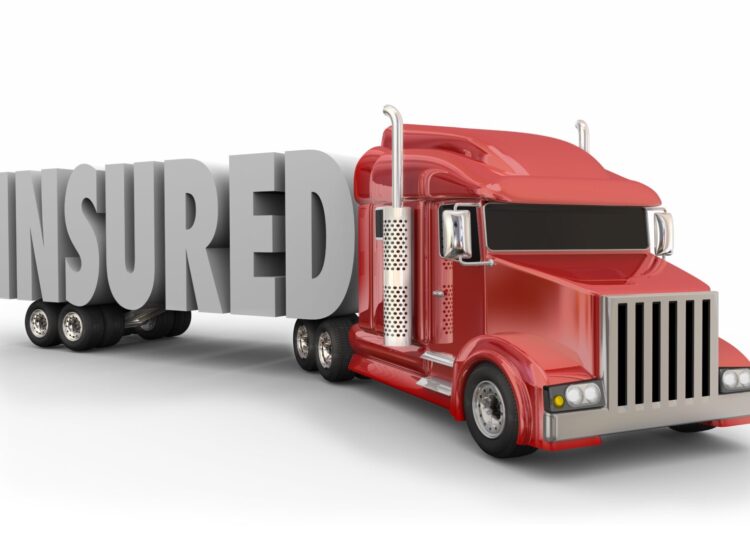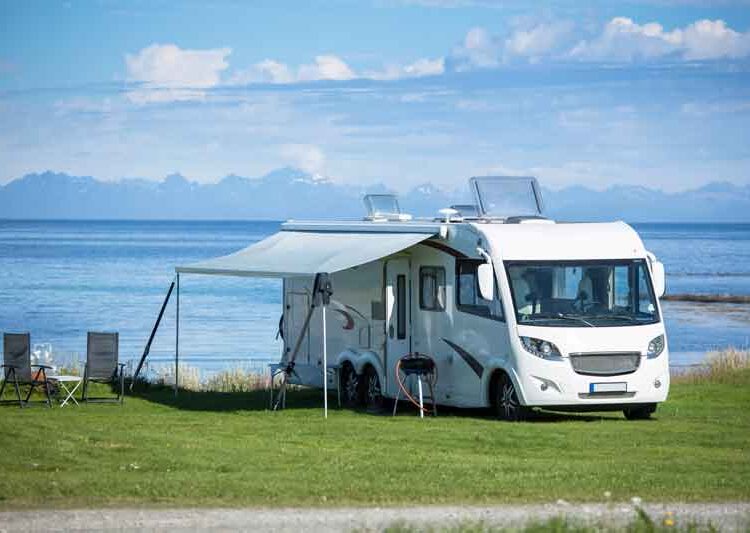Owning a camper or recreational vehicle (RV) is a dream for many, offering unparalleled freedom to explore the open road, discover new places, and create lasting memories. Whether you own a sprawling Class A motorhome, a versatile Class C, a towable travel trailer, a compact pop-up, or a lightweight fifth wheel, your RV is more than just a vehicle; it’s your home away from home, your adventure mobile.
Toc
Why Camper Insurance is Non-Negotiable
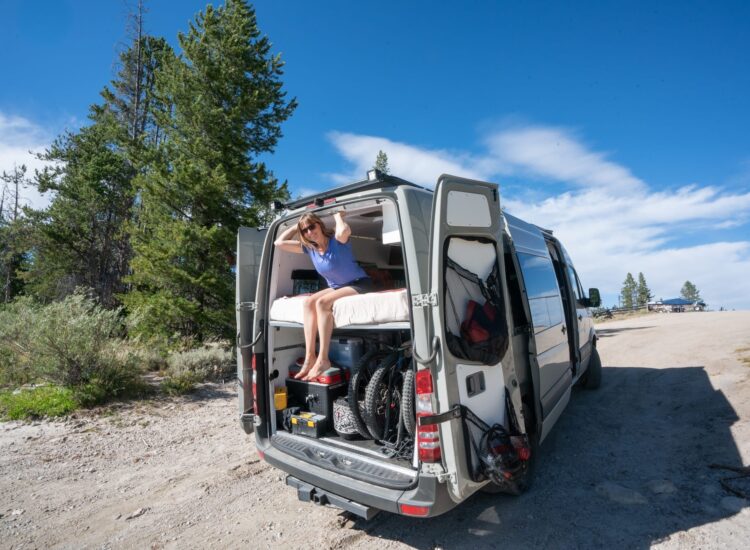
Before diving into how to find cheap camper insurance, let’s quickly touch on why it’s absolutely essential:
- Legal Requirement: In most places, liability insurance is legally required, just like with your car. This covers damages and injuries you might cause to others while operating your RV.
- Protecting Your Investment: RVs are significant investments. Collision and Comprehensive coverage help pay for repairs or replacement if your camper is damaged or stolen, saving you from potentially massive out-of-pocket expenses.
- Liability Protection: Accidents happen. If you’re at fault in an accident, liability coverage protects you from potentially ruinous lawsuits by covering medical bills and property damage for the other party.
- Contents Protection: Many camper insurance policies offer coverage for the personal belongings stored inside your RV, which may not be covered by your homeowner’s or renter’s insurance when you’re on the road.
- Peace of Mind: Knowing you’re covered allows you to relax and fully enjoy your travels without constantly worrying about potential risks.
Now that we understand why it’s needed, let’s explore how to get it affordably.
Understanding What Affects Camper Insurance Costs
The cost of camper insurance isn’t a one-size-fits-all number. Premiums vary significantly based on numerous factors. Understanding these will empower you to make informed decisions and find cheap camper insurance options tailored to your needs.
Here are the primary factors influencing your camper insurance premium:
- Type of RV: The class and type of your recreational vehicle is a major determinant.
- Motorhomes (Class A, B, C): Generally more expensive to insure than towables because they are self-propelled vehicles combining a chassis and living space. Insurance acts more like auto insurance, factoring in engine size, vehicle value, and safety features. Class A motorhomes are often the most expensive to insure due to their size and value.
- Towable RVs (Travel Trailers, Fifth Wheels, Pop-ups): Typically cheaper to insure for the vehicle itself as they are not self-propelled. Liability is usually covered by the towing vehicle’s insurance when attached. However, you still need separate coverage for the physical trailer (Collision, Comprehensive), its contents, and potentially Vacation Liability if using it as a temporary dwelling.
- Age and Value of the RV: Like cars, newer and more expensive RVs cost more to repair or replace, leading to higher premiums for Collision and Comprehensive coverage. Older RVs might have lower physical damage costs but could be harder to find parts for.
- How You Use Your RV (Usage): This is arguably one of the biggest factors affecting cost.
- Recreational Use: If you use your camper for occasional vacations and trips (typically less than 150-180 days a year), your premium will be significantly lower than full-time use. This is the most common type of policy.
- Full-Time Use: If your RV is your primary residence, you will need a full-time RV insurance policy. This coverage is more comprehensive and expensive because the RV is exposed to risks 24/7 and acts as your home. It includes coverages similar to homeowners insurance, such as personal liability and possibly loss assessment coverage.
- Storage: Some insurers offer discounted rates if your RV is stored and not used for a significant portion of the year (e.g., winter storage).
- Your Driving Record: A clean driving record with no accidents or traffic violations will help you secure cheap camper insurance. A history of incidents will drive costs up.
- Your Claims History: Having previous insurance claims (on auto, home, or RV policies) can signal a higher risk to insurers and result in higher premiums.
- Where You Live and Travel: Insurance rates vary by state and even zip code due to factors like population density, crime rates, weather patterns (hail, hurricanes), and accident statistics in those areas. Where you plan to travel frequently can also sometimes play a role.
- Chosen Coverage Levels and Deductibles: The amount of coverage you select (liability limits, physical damage limits) and your chosen deductibles directly impact your premium. Higher liability limits and lower deductibles increase the cost, while lower limits and higher deductibles decrease it.
- Added Endorsements: Adding optional coverages like pest damage, roof damage, full replacement cost (for newer RVs), vacation liability (even for recreational users), or roadside assistance will increase your premium.
By understanding these factors, you can start to see where potential cost savings might lie and what questions to ask insurers when seeking cheap camper insurance.
Key Types of Camper Insurance Coverage Explained

To find affordable yet adequate coverage, you need to understand what you’re buying. Here are the common types of camper insurance coverages:
-
Liability Coverage: This is the most crucial coverage and often legally required. It pays for property damage and bodily injury you cause to others in an accident where you are at fault. It includes:
- Bodily Injury Liability: Covers medical expenses, lost wages, and pain and suffering for those injured in the accident.
- Property Damage Liability: Covers damage to other people’s vehicles or property (fences, buildings, etc.).
- Impact on finding cheap camper insurance: Choosing minimum required liability limits is the “cheapest” option initially, but it leaves you exposed to potentially devastating costs if damages exceed your limits. It’s often wise to balance cost with sufficient protection.
-
Collision Coverage: Pays for damage to your RV if it collides with another vehicle or object (like a tree, fence, or guardrail), regardless of who is at fault.
- Impact on finding cheap camper insurance: Required if you have a loan. Choosing a higher deductible lowers this portion of your premium.
-
Comprehensive Coverage: Covers damage to your RV from incidents other than collision. This includes theft, vandalism, fire, natural disasters (hail, floods, wind), falling objects, and striking an animal.
- Impact on finding cheap camper insurance: Also often required with a loan. Like collision, a higher deductible reduces the premium for this coverage.
-
Uninsured/Underinsured Motorist Coverage (UM/UIM): Pays for your medical expenses and damage to your RV if you are hit by a driver who has no insurance (uninsured) or not enough insurance (underinsured) to cover your costs.
- Impact on finding cheap camper insurance: Adds to the cost but protects you from irresponsible drivers. The cost is usually relatively low compared to liability or physical damage.
-
Medical Payments Coverage (MedPay): Pays for medical expenses for you and your passengers, regardless of who is at fault.
-
Personal Effects Coverage: Covers personal belongings inside your RV, such as clothing, electronics, camping gear, etc., if they are stolen or damaged. Your homeowner’s policy might offer some coverage, but it’s often limited when items are away from home. RV-specific coverage is often better.
- Impact on finding cheap camper insurance: Optional, adds to cost. Consider the value of items you travel with.
-
Roadside Assistance: Provides help if your RV breaks down, including towing, tire changes, battery jump-starts, etc.
- Impact on finding cheap camper insurance: Optional, adds to cost. Can be very valuable given the size and complexity of RVs.
-
Vacation Liability: Provides liability coverage when your RV is parked and being used as a temporary residence (like at a campground). It’s similar to homeowners liability, covering injuries to guests at your campsite. This is particularly important for full-time RVers but also beneficial for recreational users who spend extended time at campgrounds.
- Impact on finding cheap camper insurance: Optional for recreational users, adds to cost, but essential for full-time RVers. Provides valuable protection often not covered by standard auto liability when the RV is stationary.
-
Total Loss Replacement Plus (Full Replacement Cost): For new or nearly new RVs, this coverage will replace your totaled RV with a brand new comparable model, rather than just paying out its depreciated actual cash value.
- Impact on finding cheap camper insurance: More expensive than Actual Cash Value coverage, but can save you a significant amount if you total a new RV.
Understanding these coverages helps you determine what you truly need versus what is optional, allowing you to strip away unnecessary costs while still maintaining essential protection in your quest for cheap camper insurance.
Actionable Strategies to Find Cheap Camper Insurance
Now for the practical part: how to actually lower your premium and find those affordable options. Finding cheap camper insurance requires a proactive approach.
-
Shop Around and Compare Quotes Extensively:
2. https://duocphamvietduc.com.vn/mmoga-a-comprehensive-guide-to-motorcoach-insurance/
4. https://duocphamvietduc.com.vn/mmoga-college-loans-your-guide-to-financing-higher-education-in-2025/
5. https://duocphamvietduc.com.vn/mmoga-rv-insurance-your-essential-companion-on-every-adventure-road/
- This is the single most effective way to find cheap camper insurance. Do not settle for the first quote you receive.
- Contact multiple insurance providers. Get quotes from:
- Large national insurers (like Progressive, GEICO, State Farm, Allstate)
- Specialty RV insurers (like Good Sam Insurance Agency, National General, Foremost) – these often have expertise in RV coverage and may offer competitive rates or better coverage options specifically for RVers.
- Independent insurance agents who work with multiple carriers. They can shop the market for you.
- When comparing, ensure you are getting quotes for the exact same coverage levels and deductibles so you can make a true apples-to-apples comparison.
-
Understand Your Real Coverage Needs:
- Don’t blindly accept recommended coverage levels. Assess your situation:
- Usage: Are you recreational or full-time? Ensure your policy matches your usage accurately. Paying for full-time coverage when you’re only recreational is a waste of money. Underinsuring a full-timer is dangerous.
- Value: What is your RV actually worth? Do you need full replacement cost or is actual cash value sufficient?
- Risk Tolerance: What level of liability are you comfortable with? While higher limits cost more, they offer crucial protection. Don’t cheap out on liability just to save a few dollars upfront.
- Personal Belongings: Do you keep valuable items in your RV? Factor this into personal effects coverage.
- Tailoring your policy precisely helps avoid paying for unnecessary coverage while ensuring you have what’s critical.
- Don’t blindly accept recommended coverage levels. Assess your situation:
-
Increase Your Deductible:
- The deductible is the amount you pay out-of-pocket before your insurance coverage kicks in for a claim (Collision or Comprehensive).
- Choosing a higher deductible (e.g., $1,000 or $1,500 instead of $500) will significantly lower your premium.
- Consideration: Only choose a deductible you can comfortably afford to pay if you have to file a claim. A lower premium isn’t helpful if a minor incident leads to a financial struggle because your deductible is too high.
-
Ask About and Apply for Discounts:
- Insurers offer various discounts that can help lower your premium. Always ask your agent or look for these when getting quotes. Common discounts include:
- Safe Driver Discount: For maintaining a clean driving record over several years.
- Multi-Policy Discount (Bundling): Insuring your RV, car, and/or home with the same company can often lead to significant savings on all policies. This is a great way to find cheap camper insurance through your existing insurers.
- Membership Discounts: Discounts for being a member of RV clubs or associations (like Good Sam Club, FMCA – Family Motor Coach Association).
- Safety Features Discount: For having anti-lock brakes, security systems, tracking devices, or other safety features on your RV.
- Storage Discount: If you store your RV for a significant portion of the year (e.g., winter), some insurers offer a lower rate during the storage period.
- Original Owner Discount: Sometimes available if you were the first owner of the RV.
- Loyalty Discount: For staying with the same insurance company for a number of years.
- Proof of Ownership Discount: Sometimes offered for owning your RV outright rather than financing it.
- Even small discounts can add up, making your camper insurance more affordable.
- Insurers offer various discounts that can help lower your premium. Always ask your agent or look for these when getting quotes. Common discounts include:
-
Maintain a Good Driving Record:
- While not an instant fix, maintaining a clean driving record over time is one of the best long-term strategies for keeping all your insurance costs, including camper insurance, low.
-
Improve RV Security:
- Installing anti-theft devices or tracking systems can potentially qualify you for additional discounts and also make your RV less likely to be stolen or vandalized, preventing future claims that could raise rates.
-
Consider Usage Carefully (Again):
- If your usage changes (e.g., you stop full-timing or plan an extended trip when you are usually recreational), inform your insurer to ensure you have the correct, most cost-effective coverage for your current needs.
-
Review Your Policy Annually:
- Insurance needs and rates change. At renewal time, review your current policy. Does the coverage still meet your needs? Are there new discounts available? Get quotes again from other insurers to see if you can find a better deal. The company that was cheapest last year might not be the cheapest this year.
Finding cheap camper insurance is a realistic goal for RV owners. It requires understanding the factors that influence costs, knowing the types of coverage available, and actively implementing strategies to lower your premium.
By comparing quotes from multiple providers, tailoring your coverage to your specific usage and needs, taking advantage of discounts, and maintaining a good record, you can significantly reduce the cost of your RV insurance. While aiming for affordability, always prioritize adequate liability coverage and ensure your physical damage coverage aligns with the value of your RV.

